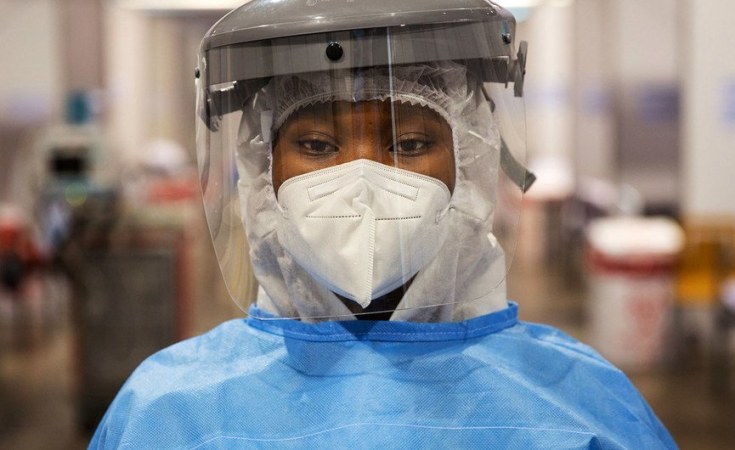Health Minister, Dr Joe Phaahla, has confirmed that there has been no rise in COVID-19 cases, hospitalisation and deaths since all the restrictions were lifted in June.
In June, South Africa dropped all of all remaining Coronavirus-related restrictions, including the wearing of masks.
The Minister was on Friday speaking during a media briefing on COVID-19 and government's response to the monkeypox outbreak.
Since the lifting of restrictions, Phaahla said, COVID-19 tests, cases, hospitalisations and deaths have all continued to decline.
"This is an indication that we acted in the public's interest once we were confident that the level of risk of another flare-up was very low."
This is the reason South Africa has now shifted from daily to weekly reporting as the country does for other respiratory diseases such as influenza.
He said COVID-19 is currently at a low level and showing a shift to an endemic pattern.
However, the Minister said COVID-19 tests, cases, hospitalisations and deaths indicators are closely monitored on an ongoing basis for any signals of concern.
In addition, he said two sub-variants, BA4 and BA5 are still predominant, but the numbers are very low.
"They have presented with a milder picture in South Africa likely the result of high levels of immunity from previous infection or vaccination which offer protection against severe illness," he said.
Vaccination
Phaahla also warned the risk of contracting COVID-19 is still high for those who are aged 50 and above, the youngsters, and the unvaccinated.
"I would like to emphasise that COVID-19 is a fickle virus and it remains possible for new variants to emerge, which is why we conduct surveillance and sequencing on an ongoing basis to allow rapid detection should this occur."
He told the media that vaccination is still the best way to ensure immunity and prevent severe infections.
"For the best protection, everyone is urged to stay up to date with their COVID-19 vaccines, which includes getting boosters if you are eligible."
While vaccines are not 100% effective at preventing infection, some people who are vaccinated will get what we refer to as "breakthrough infections".
However, he said these infections tend to be less severe than those in unvaccinated people.
As of Wednesday this week, the country had administered 37 343 941 doses, with 20 307 956 adults now vaccinated, which is 51.03% of the population over 18 years.
The Minister said the current high-level statistics show a very slow uptake of vaccinations since the lifting of the COVID-19 restrictions.
"However, we are pleased that people are still seeking vaccination, both those who are coming for first doses and those who are returning for boosters."
Children
Phaahla said the Ministerial Advisory Committee on Vaccines has this past week recommended that children aged between five and 11 who are at risk of severe COVID disease should be offered vaccination.
"Vaccination of healthy children in this age group is not recommended for now and several logistical issues that must be addressed before vaccination of children in this age group can be implemented but we will announce as soon as the matters are all in order," he added.


